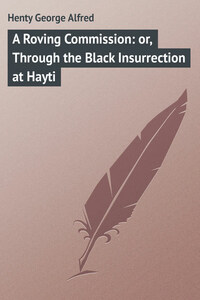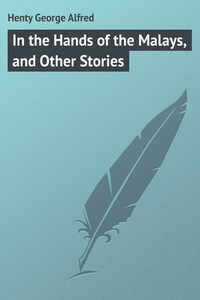Horrible as were the atrocities of which the monsters of the French Revolution were guilty, they paled before the fiendish outrages committed by their black imitators in Hayti. Indeed, for some six years the island presented a saturnalia of massacre, attended with indescribable tortures. It may be admitted that the retaliation inflicted by the maddened whites after the first massacre was as full of horrors as were the outrages perpetrated by the blacks, and both were rivalled by the mulattoes when they joined in the general madness for blood. The result was ruin to all concerned. France lost one of her fairest possessions, and a wealthy race of cultivators, many belonging to the best blood of France, were annihilated or driven into poverty among strangers. The mulattoes, many of whom were also wealthy, soon found that the passions they had done so much to foment were too powerful for them; their position under the blacks was far worse and more precarious, than it had been under the whites. The negroes gained a nominal liberty. Nowhere were the slaves so well treated as by the French colonists, and they soon discovered that, so far from profiting by the massacre of their masters and families, they were infinitely worse off than before. They were still obliged to work to some extent to save themselves from starvation; they had none to look to for aid in the time of sickness and old age; hardships and fevers had swept them away wholesale; the trade of the island dwindled almost to nothing; and at last the condition of the negroes in Hayti has fallen to the level of that of the savage African tribes. Unless some strong white power should occupy the island and enforce law and order, sternly repress crime, and demand a certain amount of labour from all able-bodied men, there seems no hope that any amelioration can take place in the present situation.
CHAPTER I
A FIGHT WITH A BLOODHOUND
Now, look here, Nathaniel – "
"Drop that, Curtis, you know very well that I won't have it. I can't help having such a beast of a name, and why it was given me I have never been able to make out, and if I had been consulted in the matter all the godfathers and godmothers in the world wouldn't have persuaded me to take such a name. Nat I don't mind. I don't say that it is a name that I should choose; still, I can put up with that, but the other I won't have. You have only just joined the ship, but if you ask the others they will tell you that I have had at least half a dozen fights over the name, and it is an understood thing here that if anyone wants a row with me he has only got to call me Nathaniel, and there is no occasion for any more words after that."
The speaker was a pleasant-faced lad, between fifteen and sixteen, and his words were half in jest half in earnest. He was a general favourite among his mess-mates on board H. M. frigate Orpheus. He was full of life and fun, exceptionally good-tempered, and able to stand any amount of chaff and joking, and it was understood by his comrades that there was but one point that it was unsafe to touch on, and that sore point was his name. It had been the choice of his godmother, a maiden aunt, who had in her earlier days had a disappointment. Nat had once closely questioned his father as to how he came by his name, and the latter had replied testily:
"Well, my boy, your Aunt Eliza, who is, you know, a very good woman – no one can doubt that – had a weakness. I never myself got at the rights of the matter. Anyhow, his name was Nathaniel. I don't think there was ever any formal engagement between them. Her own idea is that he loved her, but that his parents forbade him to think of her; for that was at a time before her Aunt Lydia left all her money to her. Anyhow, he went abroad, and I don't think she ever heard of him again. I am inclined to think it was an entire mistake on her part, and that the young fellow had never had the slightest fancy for her. However, that was the one romance of her life, and she has clung to it like a limpet to a rock. At any rate when we asked her to be your godmother she said she would be so if we would give you the name of Nathaniel. I own it is not a name that I like myself; but when we raised an objection, she said that the name was very dear to her, and that if you took it she would certainly make you her heir, and more than hinted that if you had any other name she would leave her money to charitable purposes. Well, you see, as she is worth thirty thousand pounds if she is worth a penny, your mother and I both thought it would be folly to allow the money to go out of the family for the sake of a name, which after all is not such a bad name."
"I think it beastly, father, in the first place because it is long."
"Well, my boy, if you like we can shorten it to Nathan."
"Oh, that would be a hundred times worse! Nathan indeed! Nat is not so bad. If I had been christened Nat I should not have particularly minded it. Why did you not propose that to aunt?"














